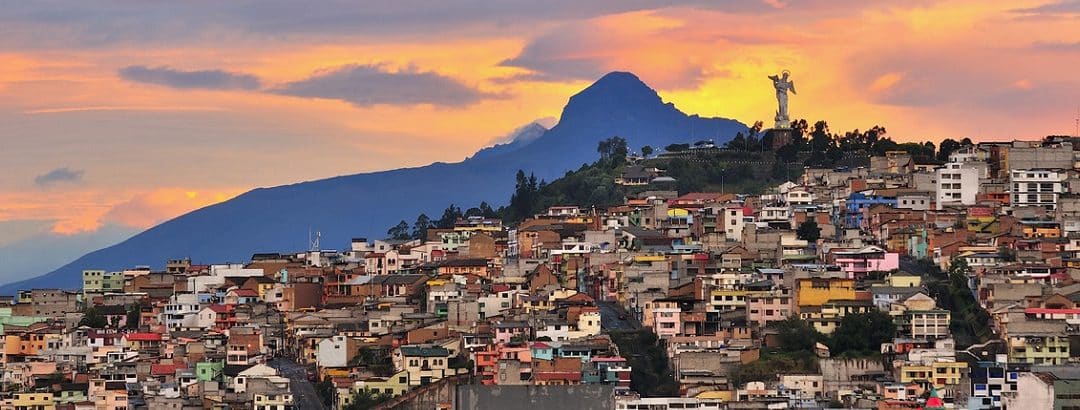Cristina Leon Vera | 14/08/2025
Instability, the climate crisis, and geopolitical risk are facts of corporate life. Companies around the world are redrawing their production maps in search of allies and geographic proximity as shields against new challenges.
The geopolitical landscape is constantly changing: where there was once security, there are now threats, and vice versa. Companies have stopped asking themselves where they can produce their goods with the highest margins and are now considering where they can operate with the lowest risks. In a landscape marked by armed conflicts, rivalries between countries, or post-COVID devastation, strategies like friendshoring (a trade practice where supply chain networks are focused on countries regarded as political and economic allies) and nearshoring (the outsourcing of business processes to companies located in a nearby country, often sharing a border) are emerging as highly relevant management strategies.
Since 2020, major events have occurred that have had a global impact. The global COVID pandemic, trade tensions between China and the West—especially with the United States—the war in Ukraine, and a number of extreme weather events have pushed corporations to seek new ways to adapt and thrive. The response is consistent across all sectors: diversify, make friends, and seek alliances.
According to a study published by Bain & Company in 2024, 80% of global operations managers are planning to increase their production relocation to partner countries. The objective is clear: to avoid risks, both reputational and logistical.
Nearshoring: closer and safer
Moving production to countries close to the final market is what nearshoring is all about. Advantages include reduced costs and transit times, faster responsiveness to disruptions, and a reduced carbon footprint. In recent years, we’ve seen countries like Mexico consolidate itself as a key trading partner for the US, with Morocco, Poland, and Turkey becoming preferred destinations for Europe-based enterprises.
However, nearshoring is not without its challenges: a shortage of specialized talent in some less-developed areas, limited infrastructure, different regulatory frameworks, or even risks specific to the destination location.
Friendshoring : producing with allies
In 2021, then-Federal Reserve Chair Janet Yellen coined the term friendshoring. She meant offshoring, but only to countries that could be considered trusted allies. While it doesn’t necessarily imply geographic proximity, it does require political and legal stability.
Visible examples include the diversification of part of Apple’s production to India and Vietnam, or the promotion of European strategic autonomy with allies such as Canada, South Korea, and Japan.
While a friendshoring strategy may seem safer, it also carries some risks. According to the International Monetary Fund (IMF), its expansion could fragment world trade into friendship blocs and reduce global growth. Trade barriers, higher costs, and supply chain disruptions are part of the price to be paid.
Hybrid models: the middle ground
To mitigate risks and boost resilience, more and more companies are opting for hybrid models that combine friendshoring, nearshoring, and split-shoring (a supply chain strategy where companies balance offshore production with manufacturing closer to their key markets and/or suppliers). This combination allows for diversification without completely disrupting the traditional supply chain.
This doesn’t mean cutting ties with countries like China, where many companies have moved their production, but rather that other locations will be added to the list to avoid critical dependencies.
As CESEDEN (Higher Center for National Defense Studies) explains in its monograph The New Globalization and Opportunities with Ibero-America, this process is leading to a new fragmented globalization, which requires a rethinking of corporate geoeconomics. Resilient supply chains can no longer be limited to efficiency – they must be robust and strategic.
These hybrid strategies bring together the best of both worlds:
- Reduced risk, by avoiding dependence on unstable regions.
- Lower logistics costs, thanks to physical proximity.
- Regulatory security, given that allies tend to share regulatory and technological frameworks.
- Greater adaptability, stemming from the flexibility gained in responding to disruptions such as pandemics or conflicts.
A new business map
In this scenario, Latin America is emerging as a great opportunity. Countries like Chile, Mexico, Uruguay, and Costa Rica stand out as ideal destinations. According to the World Economic Forum, friendshoring can offer “tremendous benefits to boost growth in Latin America and the Caribbean.”
For its part, Spain has increased its business presence in Mexico, seeking technological and productive alliances driven by bilateral and EU agreements, as observed by the Association of Electronics, Information Technology, and Telecommunications Companies in its article Mexico and Spain: a strategic alliance in times of friendshoring and geopolitical reconfiguration.
Adapting in order to thrive
Strategies like friendshoring and nearshoring are gaining ground as sustainable responses to a global environment marked by uncertainty. In addition to reducing risks, they strengthen collaboration between partner countries, promoting stability, efficiency, and security.
The era of offshoring focused solely on low costs is over. Logistical resilience and political affinity are now the new drivers of business decisions.
In this context, companies that manage to adapt and strategically diversify will not only prosper in the new economic order, but will also lead the future of global production.





